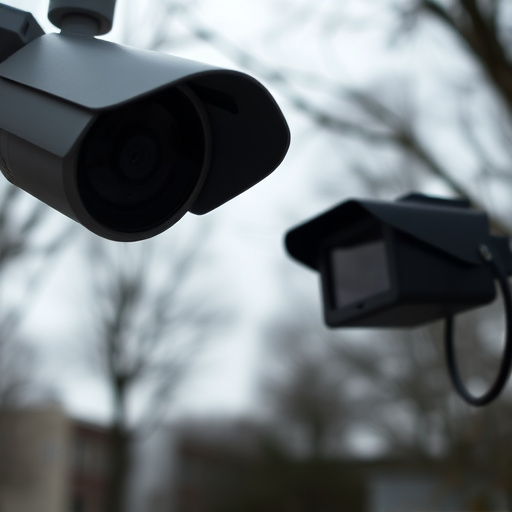Before installing secret nanny cameras, understand and comply with local laws regarding consent, privacy expectations, and surveillance purposes to avoid legal consequences, fines, and criminal charges. Respect privacy rights while ensuring residential security measures adhere to jurisdiction-specific regulations on secret cameras.
In today’s digital era, homeowners are increasingly turning to secret camera mounting for residential safety. However, deploying hidden cameras raises significant legal and ethical considerations, especially regarding privacy rights. Understanding the laws surrounding secret nanny cameras is crucial before installing them. This article explores best practices for discreet camera placement, balancing enhanced security with respect for personal privacy, offering valuable tips for homeowners seeking to fortify their homes without compromising ethical boundaries.
- Understanding Legal Implications of Secret Cameras
- Ethical Considerations for Home Surveillance
- Best Practices for Discreet Camera Placement
- Enhancing Safety Without Invading Privacy
Understanding Legal Implications of Secret Cameras
Before installing any secret cameras in your residential property, it’s crucial to understand the legal implications and adhere to the laws regarding such devices. The use of hidden cameras is a sensitive topic, as it raises privacy concerns for both homeowners and individuals being monitored. Each jurisdiction has its own set of regulations governing surveillance technology, particularly when it comes to secret nanny cameras.
In many places, there are strict rules about consent, reasonable expectations of privacy, and the purpose of surveillance. Homeowners must be aware that installing a hidden camera without the knowledge or permission of everyone being recorded can result in severe legal consequences, including fines and potential criminal charges. It’s essential to respect personal privacy rights while ensuring your home security measures comply with local laws regarding secret nanny cameras.
Ethical Considerations for Home Surveillance
While secret camera mounting for residential safety may seem like a straightforward solution, it’s crucial to approach this topic with an awareness of ethical considerations. Installing hidden cameras in homes raises privacy concerns and is governed by strict laws regarding secret nanny cameras or surveillance devices. Every jurisdiction has its own regulations that dictate where and how such equipment can be used, often focusing on respect for personal privacy and the potential invasion of one’s home.
It’s essential to understand these legal boundaries before setting up any hidden surveillance systems. Failure to comply with these laws not only puts you at risk of significant fines but also could lead to civil lawsuits if the cameras infringe upon the privacy of individuals, such as family members, guests, or even service providers like nannies or cleaning staff.
Best Practices for Discreet Camera Placement
When considering secret camera mounting for residential safety, it’s crucial to balance privacy concerns with effective surveillance. Best practices involve discreetly placing cameras in areas that offer clear lines of sight without invading personal spaces. Avoid hidden cameras in bathrooms, bedrooms, or other places where individuals expect privacy. It’s also essential to ensure that any camera placement complies with local laws regarding secret nanny cameras or hidden surveillance devices.
Check your region’s regulations to understand what is permitted and what constitutes a breach of privacy. Some areas have strict rules about the use of such devices, mandating clear consent from all parties involved or limiting their use to specific circumstances like monitoring elderly or disabled residents. Respecting these laws not only ensures legal compliance but also helps foster trust among family members, caregivers, and visitors.
Enhancing Safety Without Invading Privacy
Implementing residential security measures is essential, but it’s a delicate balance between enhancing safety and preserving privacy. One popular yet controversial tool in this realm is the secret camera, often used as a nanny cam to monitor children or elderly family members. While providing peace of mind, installing these devices raises important ethical considerations and legal issues regarding privacy laws.
Understanding the laws surrounding secret nanny cameras is crucial before taking such a step. Different jurisdictions have distinct regulations; some completely prohibit their use without explicit consent from all parties involved, while others allow limited installation under specific conditions. It’s vital to respect individual rights and ensure that any security measures taken do not cross into invasion of privacy territory.
When considering residential safety, it’s crucial to balance privacy concerns with robust security measures. While secret camera mounting can offer valuable insights for homeowners, it’s essential to navigate legal and ethical boundaries. Understanding the laws regarding secret nanny cameras in your region is paramount, as these regulations differ widely. Ethical considerations demand transparent practices, focusing on enhancing safety without invading personal spaces. By adhering to best practices for discreet camera placement, you can create a secure environment while respecting privacy rights. Remember, the goal is to strike a harmonious balance between protection and ethical surveillance.
